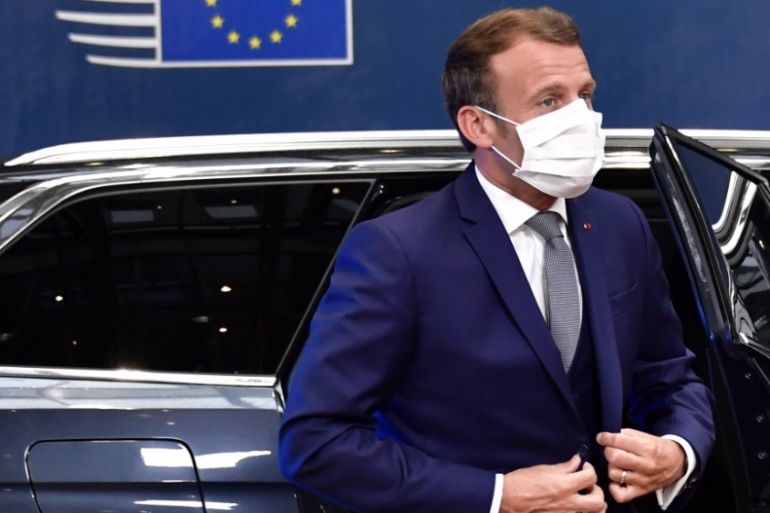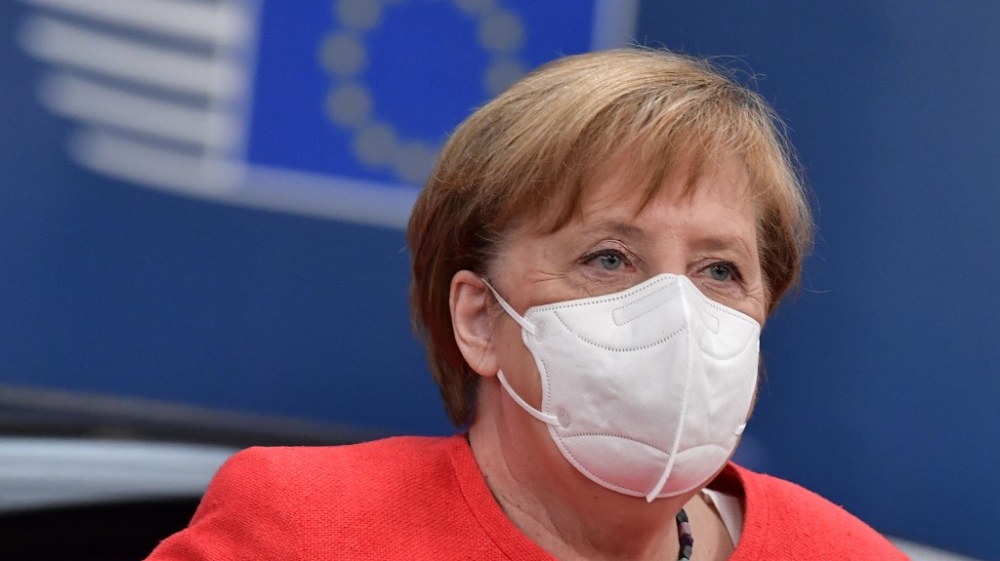EU leaders hold summit over $850bn coronavirus stimulus package
EU officials have drawn up plans for a $850bn stimulus package to lead their countries out of lockdown.

The leaders of the European Union are holding their first face-to-face summit in five months, but the reunion in Brussels seems unlikely to bridge their divide over a post-coronavirus economic rescue plan.
The EU has been plunged into a historic economic crunch by the coronavirus crisis, and EU officials have drawn up plans for a $850bn stimulus package to lead their countries out of lockdown.
Keep reading
list of 4 itemsEU lawmakers approve sweeping overhaul of asylum and migration rules
EU Parliament committee urges probe after Al Jazeera Senegal investigation
Slovakia: The Return of Fico
But a determined band of northern capitals, led by Prime Minister Mark Rutte’s Netherlands, are holding out against doling out cash to their southern neighbours without strict conditions attached.
Friday’s talks are expected to run into Saturday and perhaps even Sunday, but few here are confident of a breakthrough, despite the tight timetable, so another summit may well follow later this month.
Summit host Charles Michel, the president of the European Council, has tried to create a sense of momentum after previous coronavirus-era video conferences served only to underline the leaders’ differences.
“Finding agreement will require hard work and political will on the part of all. Now is the time. A deal is essential,” he wrote in his letter inviting the leaders back to Brussels.

“We will need to find workable solutions and come to an agreement, for the greater benefit of our citizens.”
But optimism was in short supply as the leaders gathered in the Belgian capital, some arriving early on the eve of the summit to hold private discussions before the main event.
European diplomats said the Netherlands would continue to insist that member states retain the right to veto any joint borrowing by the EU to finance loans to members.
And they want any loans or grants to come with strict conditions attached to ensure that heavily-indebted countries like Spain and Italy carry out reforms, under European Commission oversight.
This is opposed by the south. Both Michel and Germany’s Chancellor Angela Merkel, whose country has just taken on the rolling six-month presidency of the EU, will struggle to broker any compromise.
“We’re open to reaching an arrangement this weekend, but if there won’t be an agreement we are open to more negotiations later on,” Dutch Foreign Minister Stef Blok said on Wednesday.
Loans or grants
The Netherlands has emerged as the most likely holdout, but Rutte’s position is backed to varying degrees by fellow members of the so-called “Frugal Four” – Sweden, Denmark and Austria.
Michel’s draft plan foresees a 750-billion-euro ($850bn) recovery package, made up of 250 billion euros ($280bn) in loans and 500 billion euros ($570bn) in grants and subsidies that would not have to be repaid by the recipient member states.
The Frugals oppose grants, and want any loans to come with conditions attached.
This package is in addition to the planned 1-trillion-euro ($1.1 trillion) seven-year EU budget from 2021 to 2027 that the leaders must also agree in the coming weeks or months.